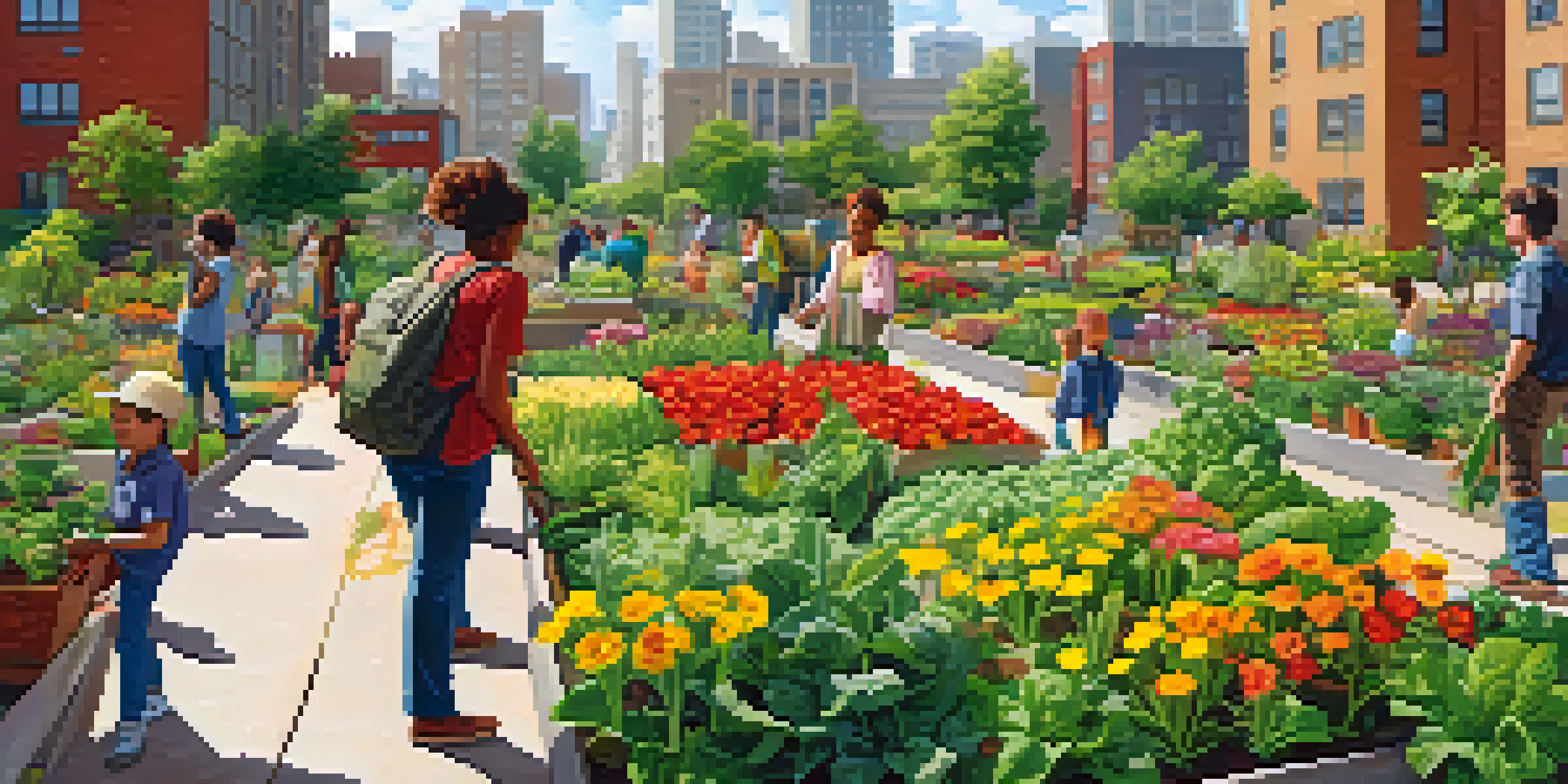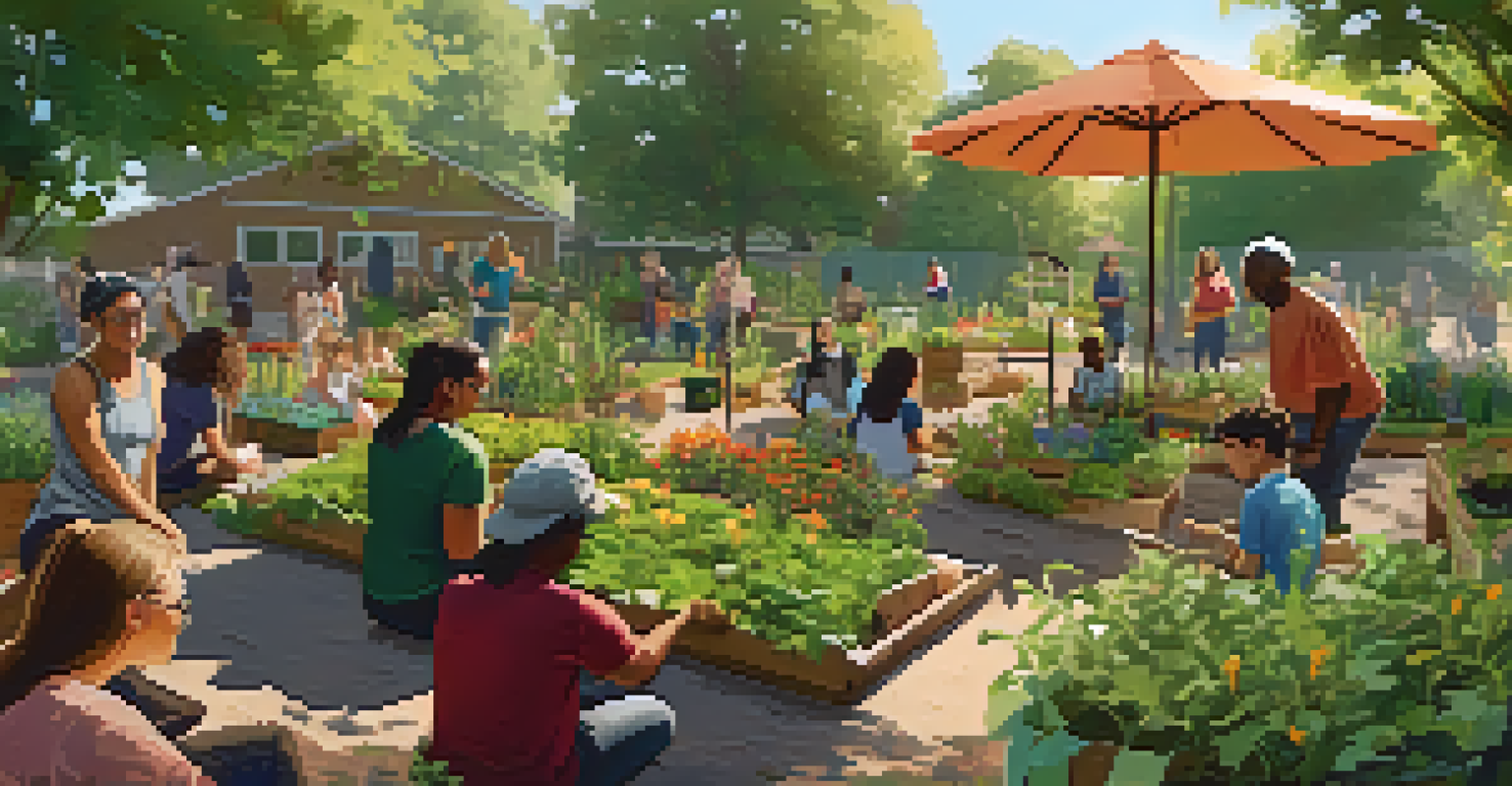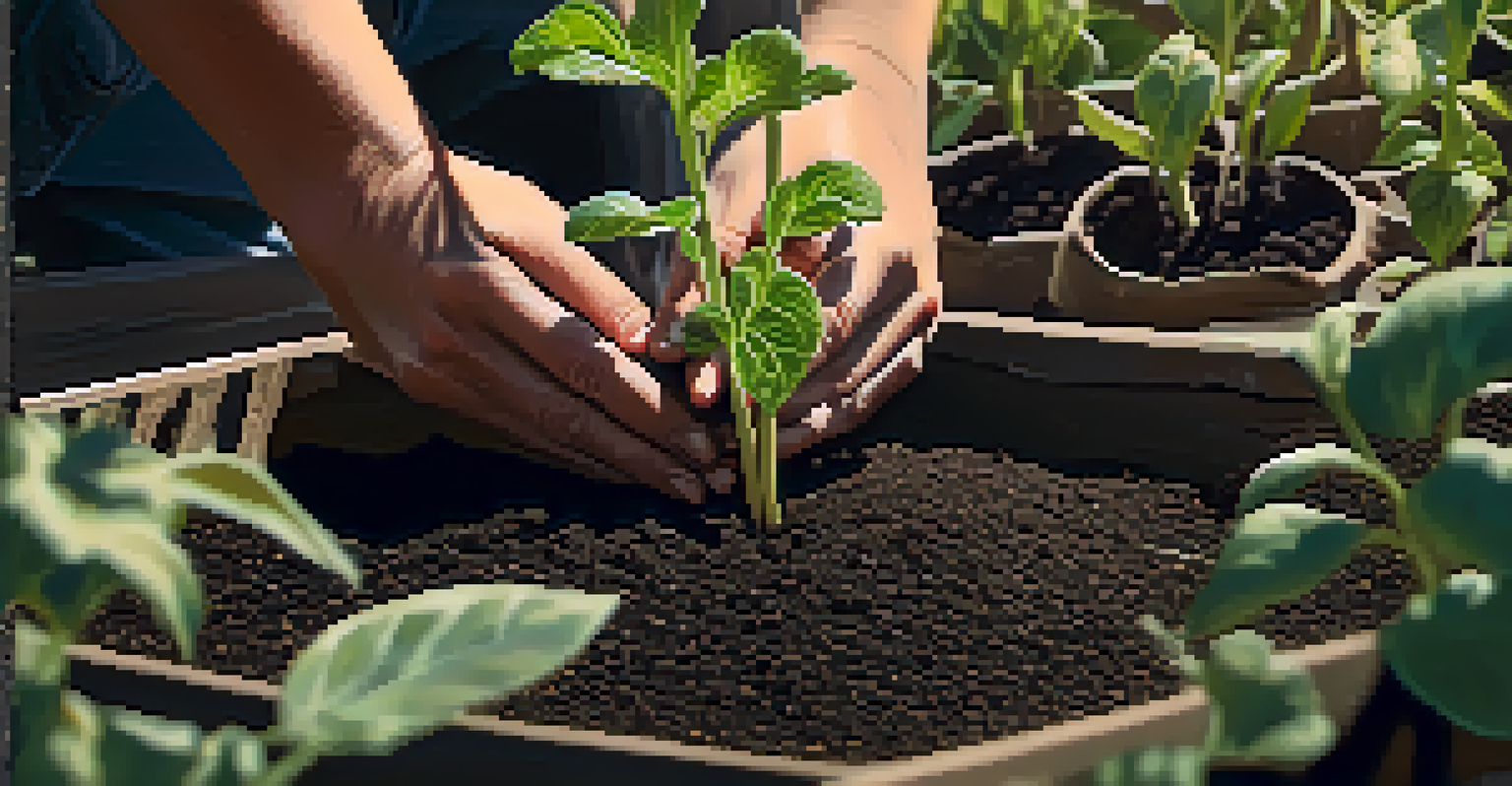The Role of Community Gardens in Promoting Health and Wellness

Community Gardens: A Green Oasis in Urban Areas
Community gardens serve as vibrant green spaces within bustling urban environments. These gardens not only beautify neighborhoods but also provide essential benefits to local residents. Imagine stepping into a lush garden filled with flowers and vegetables amidst concrete buildings; it’s like finding an oasis in a desert.
Gardening adds years to your life and life to your years.
In cities where green spaces are limited, community gardens create opportunities for residents to connect with nature. This connection can significantly reduce stress levels and improve overall mental health. The simple act of tending to plants can lead to increased feelings of happiness and satisfaction.
Moreover, these gardens foster a sense of community by bringing people together. Neighbors collaborate on gardening projects, share tips, and celebrate harvests, which cultivates friendships and a strong support network. This social interaction is crucial for emotional well-being.
Promoting Physical Health Through Gardening
Gardening is more than just nurturing plants; it's also a fantastic way to stay active. Engaging in activities like digging, planting, weeding, and watering can provide a moderate workout that benefits cardiovascular health. Think of it as a fun, productive form of exercise that can fit seamlessly into your routine.

Studies have shown that regular gardening can help reduce obesity rates and promote healthier lifestyles. By growing their own fruits and vegetables, individuals are more likely to consume fresh produce, leading to better nutrition. It's easy to see how a little time spent in the garden can yield big health benefits on your dinner plate.
Community Gardens Boost Mental Health
Engaging in gardening activities provides therapeutic benefits, reduces stress, and fosters social connections, enhancing overall well-being.
Additionally, community gardens can help combat sedentary lifestyles, especially in younger generations. By encouraging children and teenagers to get involved in gardening, we instill healthy habits that can last a lifetime. It’s a wonderful way to teach them about nutrition, responsibility, and the environment.
Mental Health Benefits of Gardening
Gardening has been linked to improved mental health outcomes, making it a powerful tool for wellness. The act of nurturing plants can be incredibly therapeutic, helping to alleviate symptoms of anxiety and depression. Many people find solace in the quiet and rhythmic nature of gardening, which can serve as a form of meditation.
To plant a garden is to believe in tomorrow.
Furthermore, spending time outdoors in a garden can boost mood and increase feelings of happiness. Exposure to sunlight increases Vitamin D levels, which is essential for mental health. When you combine physical activity with the beauty of nature, it creates a perfect recipe for emotional uplift.
Community gardens also offer a unique platform for social interaction, which is crucial for mental health. They provide a space for individuals to share experiences, support one another, and build lasting friendships. This sense of belonging can help combat feelings of isolation and loneliness.
Fostering Sustainable Practices
Community gardens play a vital role in promoting sustainable practices within neighborhoods. By encouraging residents to grow their own food, these gardens reduce the carbon footprint associated with transporting produce. This shift not only benefits individual health but also contributes to the well-being of the planet.
In addition to food production, community gardens often implement eco-friendly practices, such as composting and rainwater harvesting. These initiatives teach participants about the importance of sustainability and environmental stewardship. It’s a hands-on way to learn about protecting our planet for future generations.
Fostering Sustainable Food Practices
Community gardens promote sustainable practices by encouraging local food production, reducing carbon footprints, and teaching eco-friendly methods.
Moreover, these gardens can serve as educational hubs for sustainable agriculture. Workshops and classes about organic gardening, permaculture, and biodiversity can empower community members to make informed choices. By fostering a culture of sustainability, community gardens help create healthier environments.
Enhancing Food Security in Communities
Food security is an essential aspect of health, and community gardens can help address this issue in underserved areas. By providing access to fresh, nutritious food, these gardens combat food deserts where healthy options are scarce. Imagine being able to walk a few blocks to pick fresh tomatoes instead of relying on processed foods from the store.
Community gardens also offer opportunities for education about nutrition and healthy eating. Participants learn how to grow, harvest, and prepare their own food, which can lead to better dietary choices. This knowledge empowers individuals to make healthier decisions for themselves and their families.
By fostering a sense of food independence, community gardens can significantly improve the overall health of a community. They encourage people to take control of their food sources, reducing reliance on commercial food systems that may not always prioritize health. This empowerment translates into better health outcomes for everyone involved.
Building Resilience in Communities
Community gardens can serve as a foundation for resilience during challenging times. They offer a source of food security and social support, which can be especially crucial during economic downturns or crises. The act of growing food together fosters collaboration and unity among neighbors.
Additionally, these gardens can help communities adapt to climate change by promoting local food systems. By growing food locally, communities can reduce their vulnerability to global supply chain disruptions. This self-sufficiency builds resilience and strengthens community ties.
Enhancing Food Security Locally
By providing access to fresh produce, community gardens address food deserts and empower residents to make healthier dietary choices.
Furthermore, the experiences gained from gardening can inspire innovation and problem-solving within the community. When faced with challenges, such as pests or changing weather patterns, gardeners often come together to find solutions. This collective effort not only enhances the garden but also builds confidence and resourcefulness.
Creating Educational Opportunities Through Gardening
Community gardens can be powerful educational tools for all ages. They provide hands-on learning experiences about ecology, biology, and nutrition. Whether it's children learning about plant life cycles or adults attending workshops on sustainable practices, the educational potential is immense.
Schools often partner with community gardens to enhance their science curricula. Students are more likely to engage in lessons about nature and food systems when they can see and touch the plants they are studying. This experiential learning fosters a deeper understanding and appreciation for the environment.

Moreover, community gardens often host events and workshops that promote lifelong learning. Topics can range from cooking demonstrations to organic gardening techniques, ensuring that everyone has access to valuable knowledge. These educational opportunities empower individuals to take charge of their health and well-being.